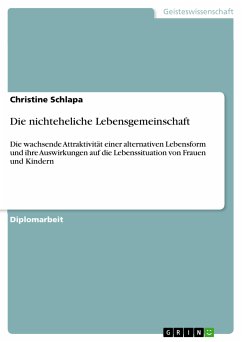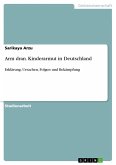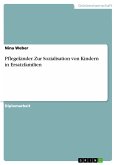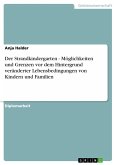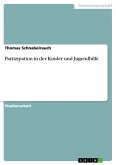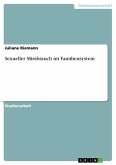Diplomarbeit aus dem Jahr 2008 im Fachbereich Soziale Arbeit / Sozialarbeit, Note: 1,0, Ernst-Abbe-Hochschule Jena, ehem. Fachhochschule Jena (Fachbereich Sozialwesen), Sprache: Deutsch, Abstract: This dissertation examined the reasons why people choose cohabitation over marriage and investigates the well-being of women and children in de facto relationships compared to their counterparts in marital unions. Reviewing international research, I discovered that cohabitation attracts people who hold unconventional and non traditional values, who are less religious and reject the male breadwinner model. Older cohabitors are often less committed to the institution of marriage, have already experienced marriage breakdown or do not want to lose there entitlements to widow's pensions. Despite the growing popularity of this living arrangement, critics argue that especially women and children fare less well in de facto unions compared to those in married relationships. While there is a negative impact for women in cohabitation, I found that children face a significant negative impact on their well-being when growing up with cohabiting parents. It has to be taken into consideration, however, that cohabitors in other jurisdictions differ from German cohabitors in their socioeconomic characteristics as well as the societal appreciation and the degree of legal recognition of their union. In consequence, not all of the conclusions drawn in this thesis are generally applicable for Germany.
Dieser Download kann aus rechtlichen Gründen nur mit Rechnungsadresse in A, B, BG, CY, CZ, D, DK, EW, E, FIN, F, GR, HR, H, IRL, I, LT, L, LR, M, NL, PL, P, R, S, SLO, SK ausgeliefert werden.

